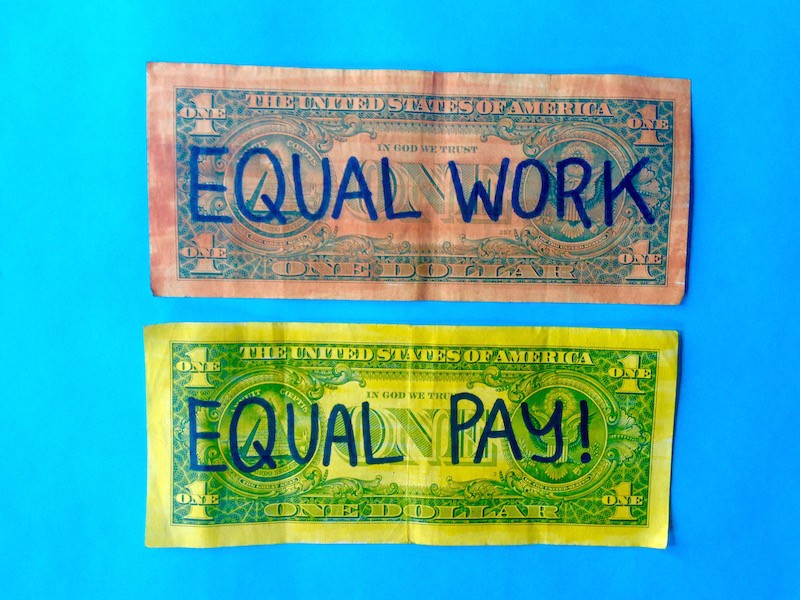
LGBT Women Face Higher Economic Inequality in America
Women around the world have made significant progress over the past 50 years. In the United states some big wins have included:
- Access to employment. Women now comprise roughly half of all workers;
- In public office; women have served as Speaker of the House and as Secretary of State;
- Women also enroll in university in greater numbers than male counterparts.
Despite these successes, another way to measure progress is wages. Women are still paid less than men. In terms of opportunities, women are more likely to hold low-wage and minimum wage jobs.
- Less than 5% of Fortune 500 CEOs are women
- 1/7 women live in poverty
- Of those in poverty, ⅖ live in extreme poverty
This data shows a big inequality already between men and women. However, looking even closer at data for LGBT Women, the inequality gap grows. In “New patterns of poverty in the lesbian, gay, and bisexual community” the Williams Institute, found 29.4% of bisexual women and 22.7% of lesbians ages 18-44 live in poverty.
America’s 5.1 million LGBT women face lower pay, frequent harassment, compromised access to health care, and heightened violence. Anti-LGBT laws, together with inequitable and outdated policies, mean that LGBT women’s economic security is compromised by reduced incomes and added costs ranging from health care to housing.
This data was backed-up by research conducted Prudential, more LGBT respondents said they were “struggling to make ends meet” today than in 2012, and 48 percent described themselves as “spenders” compared to 32 percent of non-LGBT people, which hindered saving for retirement.
“LGBT women face added challenges not solely because of their gender, but also because of who they are and whom they love. Discrimination and stigma, combined with the struggles faced by all women, make LGBT women and their families especially vulnerable,” said Ineke Mushovic, executive director of the Movement Advancement Project. “Making matters worse, the burden falls most acutely on those who can least afford it: LGBT women raising children, older LGBT women, LGBT women of color, LGBT immigrants, and those LGBT women and families who are already living near or below the poverty line.
For Transgender women, they are almost four times more likely to live in poverty than the general population found the National Center for Transgender Equality and National Gay and Lesbian Task Force Injustice at every turn: A report of the national transgender discrimination survey..
Paying an unfair price: The financial penalty for LGBT women in America, A report by MAP highlights three areas in which queer women face financial challenges: jobs, health, and family recognition. Queer women have additional challenges facing this gap:
- Workplace discrimination based on sexual orientation and/or gender identity.
- Barriers in advancement within their schools and companies
- Reduced economic resources because of receive lower pay [3].
- hostile or unsafe school and work environments, which discourages women from trying to advance or reporting discrimination.
The UK recently passed corporate rules mandating better reporting of pay gaps. Banks came in holding the biggest pay inequality shame, for example HSBC Holdings Plc and Goldman Sachs Group Inc., pay women in their workforce less than half of what men earn on average. That’s largely because women are under-represented in senior roles. President Donald Trump’s administration reversed an Obama-era rule change that would’ve compelled USA companies to report pay information to the government.
In addition, much like LGBT women face additional challenges of cisgender women, LGBT women of color face even higher poverty risk.
Tactics for working to end this gap include:
- introducing anti-discrimination laws in schools and the workplace
- Companies become more transparent, reporting on their gender employment
- Improvement employment mobility through mentoring programs
- Influencing large employers to work on their diversity and inclusion policies
- Measure milestones toward corporate pay equality
- Promoting female entrepreneurship. Startout is a USA based non-profit working with LGBT founders.
The LGBT Foundation is a not-for-profit organization with the mission to create the LGBT Token cryptocurrency and utilize blockchain technology to achieve equal rights and acceptance for all members of the LGBT+ community worldwide. The LGBT Impact branch of the Foundation will give back to the community by supporting causes and organizations that aim to advance the rights of the LGBT community around the world.